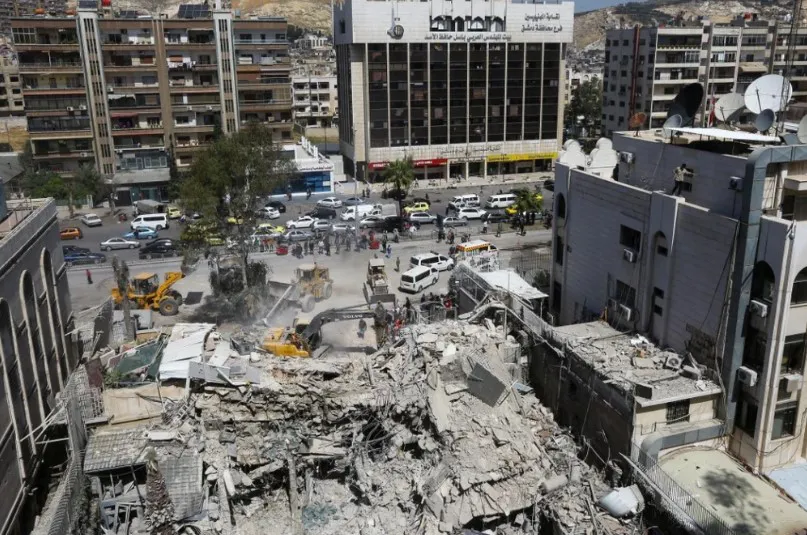It happened as it had to happen
The enmity between Iran and Israel is a long story, dating back many decades.
It surprised no one when Iran launched a retaliatory attack on Israel with hundreds of drones and missiles. Twelve days ago, Israel struck on an Iranian diplomatic complex in Syria. Since then, the question was not whether but only when and how Iran will strike back. The enmity between Iran and Israel is a long story, dating back many decades. But now Iran, for the first time, has launched a direct assault on Israel from its soil after twelve days ago, Israeli missiles for the first time targeted an official Iranian building, killing Iranians. It was a new level and grade of their rivalry. It holds enormous potential for war to be unleashed between them.
| Iranian complex in Damascus, Syria, after attacks on April 2, 2024. Photo: AFP/VNA |
But it happened as it had to happen. After having been so attacked by Israel, Iran had no other choice but to retaliate in the same way as it had been hit: assaulting Israel from Iranian soil. The common term for it was tête-à-tête. Iran's sent clear messages to Israel: It can hit targets deep inside Israeli territory from Iranian soil at any time.
Iran's drone and missile attack seemed obviously to have been massive. But in reality, it caused no remarkable casualties to Israel and it was Iran's intentions: enough to get the general impression that Iran strongly and resolutely retaliated against Israel but not painful for Israel. Iran let Israel and its allies more than enough times to be prepared for its attack so that they could intercept almost all drones and missiles Iran had launched toward Israel. And Iran very soon announced the end of its attack. It was clear that what Iran wanted to do was only to retaliate and not escalate. It was clear that Iran wanted to close this chapter. That is why Iran appealed to Israel not to attack Iran again. That is why, too, the US and Israel's allies declared not to support Israel striking Iran again while confirming their commitment to Israel's security. That is also why the Iranian response to possibly the next Israeli attacks would be profoundly different. Détente or tension in the coming days - it depends wholly on Israel's reactions to this Iranian retaliatory move against Israel.
Anyways, it is now extremely dangerous and uncertain in the Middle East and the Gulf region. The window for peaceful political solutions for the Hamas-Israeli war is slowly closing. The reconciliation between Israel and Iran is becoming more impossible than ever before. Another catastrophe for this region seems to be not far away.
Disclaimer: The views expressed by Ambassador Tran Duc Mau are his own and do not necessarily reflect the opinions of The Hanoi Times.










